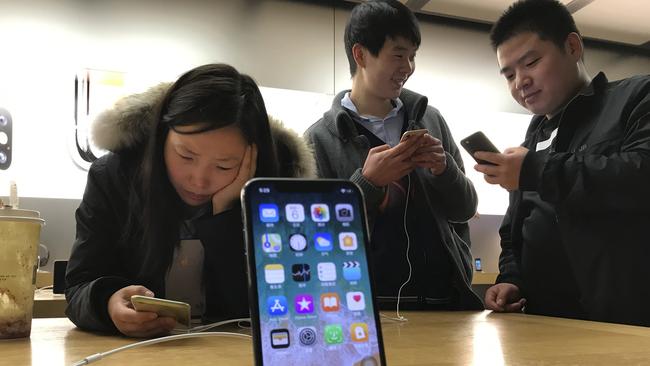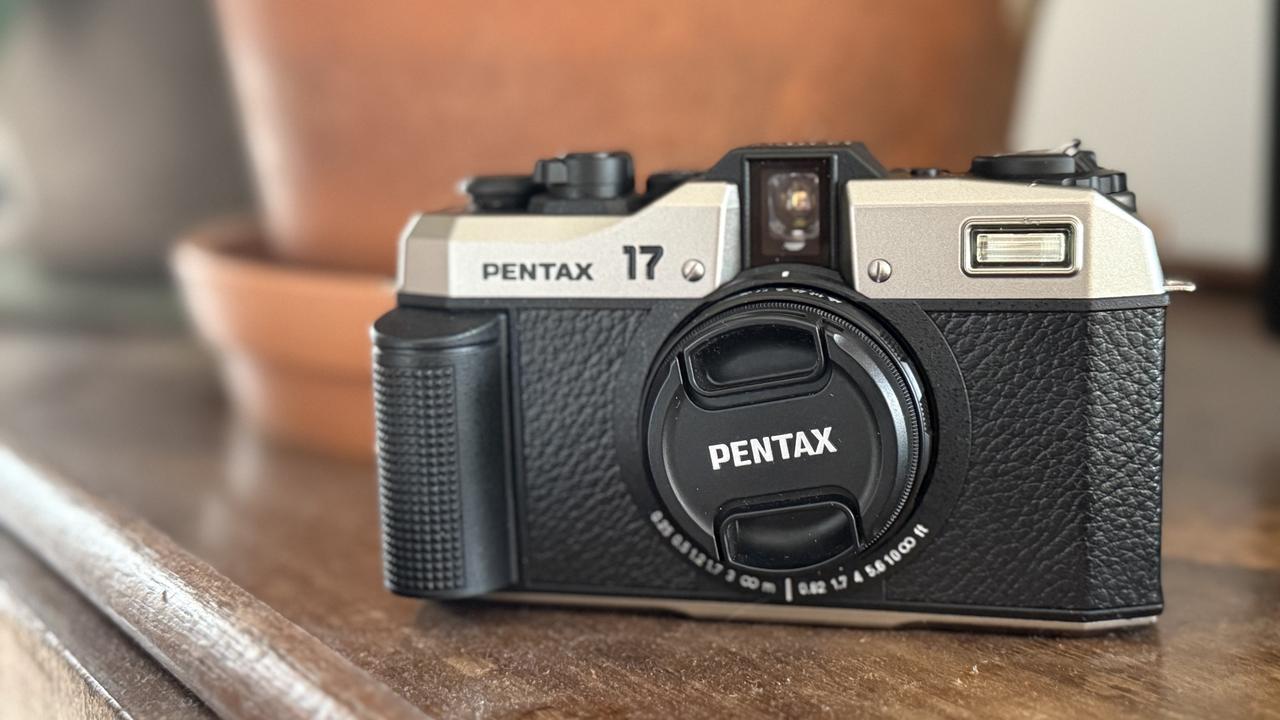Apple hit by China iPhone sales ban
Apple has been ordered by a Chinese court to stop selling older iPhone models after ruling it infringed on Qualcomm patents.

Apple has been ordered by a Chinese court to stop selling older iPhone models after finding the company infringed on two patents held by Qualcomm, casting uncertainty over Apple’s business in a critical market at a time of thorny trade relations between the US and China.
The November 30 decision by a Chinese intellectual-property court, which doesn’t apply to new iPhone models launched this year, is the first in the world’s largest smartphone market that seeks to curtail iPhone sales in the country.
Apple said its full portfolio of iPhones in China remain on sale, and that it plans to appeal the court’s decision.
Qualcomm said the Fuzhou Intermediate People’s Court in China found Apple had infringed on two patents: one related to photo editing and another to swiping on a touchscreen device.
The court order barring import and sales covers the iPhone X, 8, 7 and 6 models. It didn’t include Apple’s newest devices -- the XS, XS Max and XR -- because those models weren’t on the market when the patent case was filed.
It wasn’t immediately clear when any such ban might take effect. Apple already has phased out selling some iPhone models globally, including the 6s, 6s Plus and X.
As of last night, Apple’s China website was still selling the iPhone 7 and 8 family of phones, as well as the newest releases.
The preliminary injunction is the latest turn in a long-running legal dispute between Apple and Qualcomm. The San Diego chip company has brought more than a dozen cases against Apple over patent infringement in China over the past two years.
Apple has built a sizeable business in China, relying on the country for about a fifth of its annual revenue. The iPhone maker doesn’t break down sales by models, and analysts estimates vary.
RBC Capital Markets estimated older models account for about 40 per cent of sales in China, and that the ban could have an impact on about $US12 billion in sales.
The ruling comes as China and the US have been locked in a months long trade battle. The US has imposed tariffs on more than $US200 billion in Chinese goods, alleging unfair trade practices and intellectual-property theft. China has retaliated with tariffs of its own on US goods.
A new rift between the countries opened this month after Huawei Technologies; finance chief was arrested in Canada on behalf of US authorities. She is accused of lying to banks about Huawei’s ties to a company that did business in Iran, in violation of US sanctions.
The companies both said they were informed of the Chinese court’s decision last week. Qualcomm said the decision was dated November 30, which would be a day before the arrest of the Huawei executive.
Apple and Qualcomm have been engaged in a wide-ranging legal battle for nearly two years. The dispute began in January 2017, when Apple filed a lawsuit over Qualcomm’s practice of collecting royalties on the entire sales price of an iPhone up to $US400.
Qualcomm says it charges a percentage of an entire device because its patents, essential to implementing cellular-communication standards, relate to cellular devices as a whole, not just its chips.
During the dispute, Apple has withheld billions in royalty payments from Qualcomm. The chip maker has responded by suing Apple for infringing on Qualcomm patents in the US, China and Germany.
Qualcomm Chief Executive Steve Mollenkopf said during an appearance on CNBC last month that the companies are “on the doorstep” of a resolution. However, Apple’s attorneys have said in court proceedings in San Diego that the parties aren’t engaged in settlement discussions.
Dow Jones Newswires


